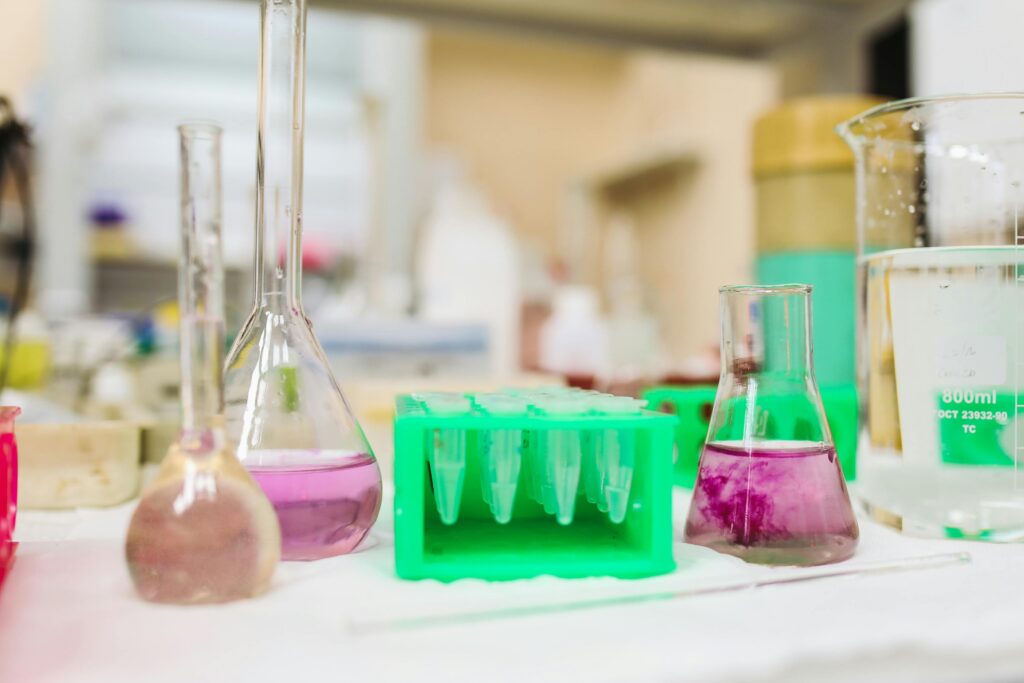After many requests, here’s a guide on how to effectively study for A-level Chemistry. Whilst these tips helped me get an A* and an overall score of 94% in my A-level Chemistry exam, they might not work for everyone, so please take this with a pinch of salt knowing that each person is different and ultimately what works for one might not work for you.
A-level Chemistry stands out due to its high levels of application in exams, requiring you to not only know the material but also apply it. It’s crucial to fully understand the content, and then practise as much as possible to become comfortable with applying your knowledge.
I’ll break this guide into three parts: Organic Chemistry, Physical Chemistry, and Inorganic Chemistry. The study approach I recommend involves making notes, watching videos to reinforce the concepts, and practising regularly.
1. General Tips for Chemistry:
- Chemistry exams test your ability to apply knowledge rather than just recall it, so thorough understanding and consistent practice are key.
- Identify and close any gaps in your knowledge—these can make it difficult to perform well in exams.
- Prioritise content that you find challenging and focus on memorising facts using strategies like sticky notes on your desk to reinforce key points.
- Use mind maps for interconnected topics to visualise how concepts link together, which is especially helpful for more complex sections like Inorganic Chemistry.
2. Physical Chemistry:
- Content Mastery: Start by making notes on the key topics, and then reinforce your understanding by watching tutorial videos.
- Practice Problems: This section is relatively straightforward but requires extensive practice to grasp fully.
- Memorization Techniques: For facts or equations you find difficult to remember, write them on sticky notes and place them in visible spots around your study space. This constant exposure helps with retention.
3. Inorganic Chemistry:
- This can be tricky due to its heavy memorization and interconnected topics.
- Reactions of Group 7 with Sulphuric Acid: Focus on understanding the half-equations and the products as you go down the group. Don’t stress too much about balancing half-equations—balance with water where necessary.
- Ions and Period 3 Oxides: Watch videos of experiments to visualise the reactions, which helps with memory retention. For Period 3 oxides, focus on the arrangement of ions rather than memorising individual reactions.
- Study Tools: Flashcards (both digital and physical) can be very helpful for retaining inorganic chemistry facts.
4. Organic Chemistry:
- This tends to be the section students struggle with the most.
- Mechanisms Mastery: Keep all the reaction mechanisms on one sheet of paper to compare and differentiate them, especially regarding the catalysts and conditions required.
- Visual Learning: Create a wall of mechanisms and their corresponding conditions to help with memorization through constant exposure.
- Practice: Organic Chemistry questions can be presented in different formats (skeletal, structural), so practise recognizing mechanisms in these various forms.
- Seek Help: If you get stuck, deal with it immediately. Organic Chemistry builds on previous knowledge, and falling behind can make it harder to catch up. Don’t hesitate to ask teachers for help or use online resources like YouTube tutorials.
5. Final Tips:
- Mindset Matters: Approach Chemistry with a positive mindset. Stress can make even the simplest topics seem difficult, so stay calm and focused.
- Online Resources: There are plenty of free YouTube classes and tutorials available, which are great for filling knowledge gaps or revising topics.
Teacher Support: Don’t hesitate to reach out to your teachers for help—whether in person or via email.




